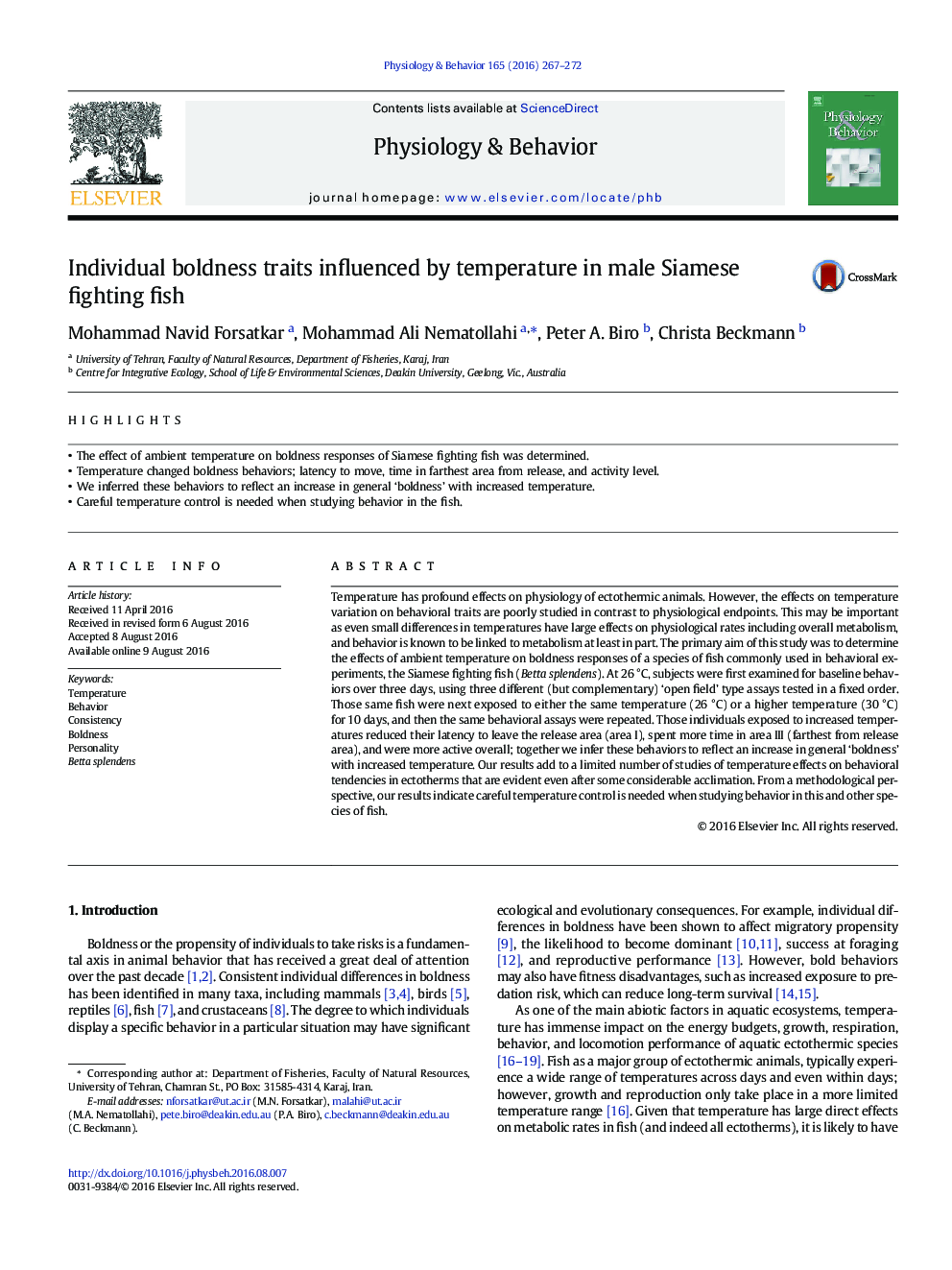| Article ID | Journal | Published Year | Pages | File Type |
|---|---|---|---|---|
| 5922810 | Physiology & Behavior | 2016 | 6 Pages |
â¢The effect of ambient temperature on boldness responses of Siamese fighting fish was determined.â¢Temperature changed boldness behaviors; latency to move, time in farthest area from release, and activity level.â¢We inferred these behaviors to reflect an increase in general 'boldness' with increased temperature.â¢Careful temperature control is needed when studying behavior in the fish.
Temperature has profound effects on physiology of ectothermic animals. However, the effects on temperature variation on behavioral traits are poorly studied in contrast to physiological endpoints. This may be important as even small differences in temperatures have large effects on physiological rates including overall metabolism, and behavior is known to be linked to metabolism at least in part. The primary aim of this study was to determine the effects of ambient temperature on boldness responses of a species of fish commonly used in behavioral experiments, the Siamese fighting fish (Betta splendens). At 26 °C, subjects were first examined for baseline behaviors over three days, using three different (but complementary) 'open field' type assays tested in a fixed order. Those same fish were next exposed to either the same temperature (26 °C) or a higher temperature (30 °C) for 10 days, and then the same behavioral assays were repeated. Those individuals exposed to increased temperatures reduced their latency to leave the release area (area I), spent more time in area III (farthest from release area), and were more active overall; together we infer these behaviors to reflect an increase in general 'boldness' with increased temperature. Our results add to a limited number of studies of temperature effects on behavioral tendencies in ectotherms that are evident even after some considerable acclimation. From a methodological perspective, our results indicate careful temperature control is needed when studying behavior in this and other species of fish.
